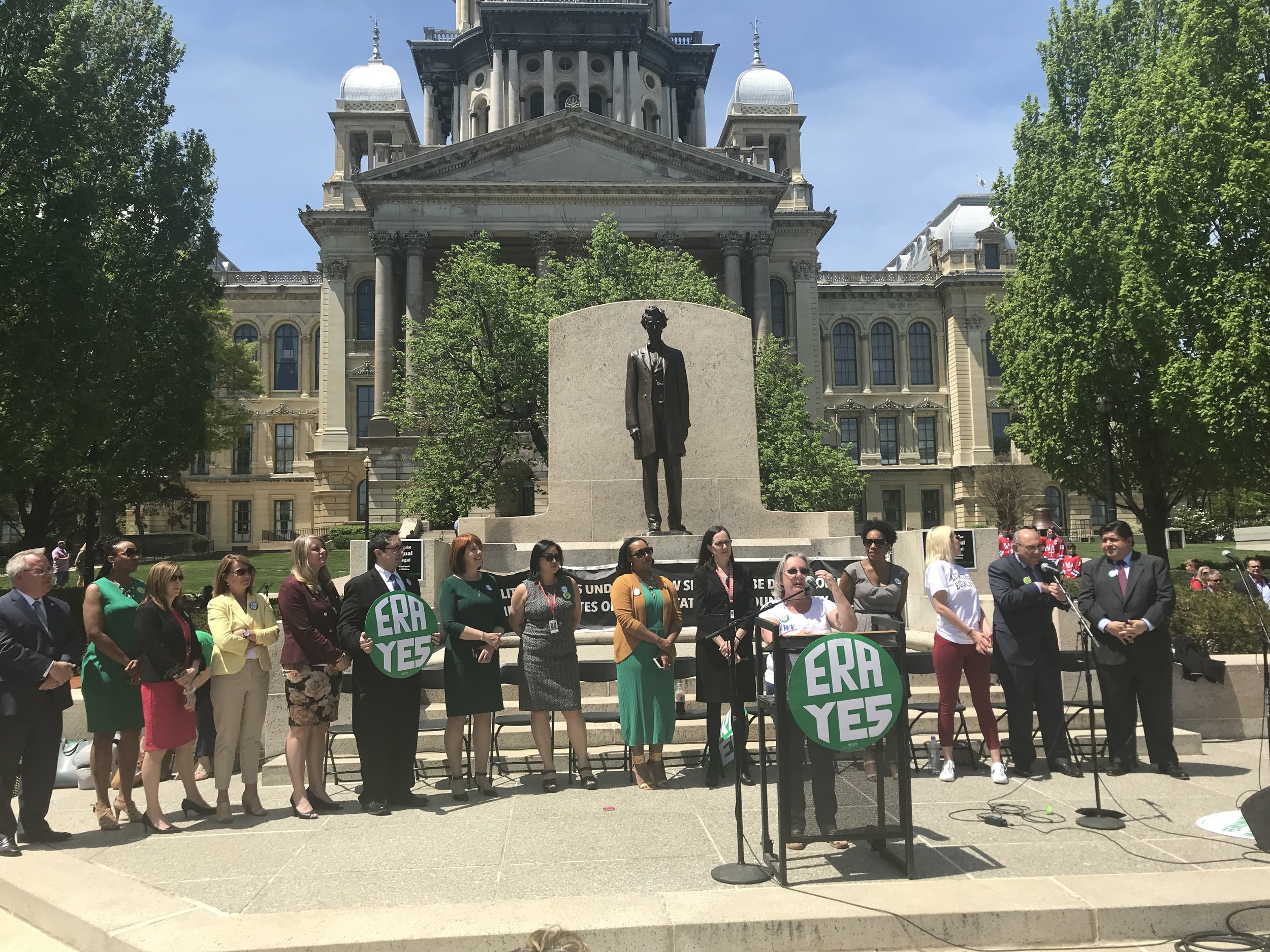Empowering Voters. Defending Democracy.

Make Your Voice Heard
How Can I Influence Government Decisions?
Democracy is not a spectator sport. Active citizens do make a difference. Voice your concerns effectively by following some basic principles. The same principles apply to your local, state, or federal government.
Is Anyone Listening?
Your elected officials work for you. If you think a proposed ordinance or policy misses the mark or have a suggestion as to how to address a problem, share your ideas. Find out how an idea moves through the process to become a law.
Who Do I Tell?
Legislators are most interested in how policies and programs affect their districts; let them know how you will be impacted. Contact them by email, letter, office visit, or phone call.
Some basic same principles for contacting your government official:
Identify yourself; give your home address.
Limit each communication to one issue.
Describe the issue that concerns you and tell the legislator the action you would like taken.
Have your talking points ready and focus on the issue.
State reasons for your views. Be brief, clear, and concise. Stick to the facts; don't stretch the truth.
Mention any relevant credentials or background.
Make it personal; explain the impact on you, your family or community.
Be courteous and respectful; keep the door open for future communication.
Listen to the officeholder’s views. Stay open to compromise.
Be patient but persistent. Don’t expect an immediate commitment. Follow up after your initial contact.
Ask for a reply, if contacting in writing. Send a thank you or follow up letter when appropriate.
Know the rules: never promise campaign contributions or give gifts to officials.
Additional suggestions:
If they are not available, ask to speak to their aide. Leave your name, address, and message with that aide.
Make an appointment or ask for a return call if you wish to have a direct discussion.
Cultivate cordial relationships with the staff as well as with the legislator.
You can also fill out a witness slip in favor of or in opposition to specific legislation.
Contact Information for Chicago Elected Officials
Contact Information for Illinois Elected Officials
Look up your U.S. Representative, State Senator, and State Representative using your address or 9-digit zip code.
U.S. House: http://www.house.gov/representatives/ Switchboard: 202-224-3121
U.S. Senate: https://www.senate.gov/senators/contact/ Switchboard: 202-224-3121
President: http://www.whitehouse.gov/contact Switchboard 202-456-1414 The White House 1600 Pennsylvania Avenue NW Washington, D.C. 20500
One-Minute Lobbying
When time is short, a telephone call or email is quick and simple way to take action. Here are example approaches for each method:
by Phone
Receptionist: Good morning. Alderman Soandso’s office.
You: Hi, my name is Jane Q. Public and I live at 100 Suchandsuch Street in Chicago.
Receptionist: How may I help you?
You: I am calling to urge the Alderman to vote in favor of the ordinance requiring homeowners to register to be an Airbnb location. I think it is important to residents know that there may regularly be non-residents staying in their communities.
Receptionist: I will let the Senator know.
You: Thank you.
by Email
Dear Alderman Soandso,
I am sending this email today to ask you to support efforts requiring homeowners to register to be an Airbnb location. I think it is important to residents to know that there regularly may be non-residents staying in their communities.
Thank you,
Jane Q. Public, 100 Suchandsuch Street, Chicago, IL 60657
